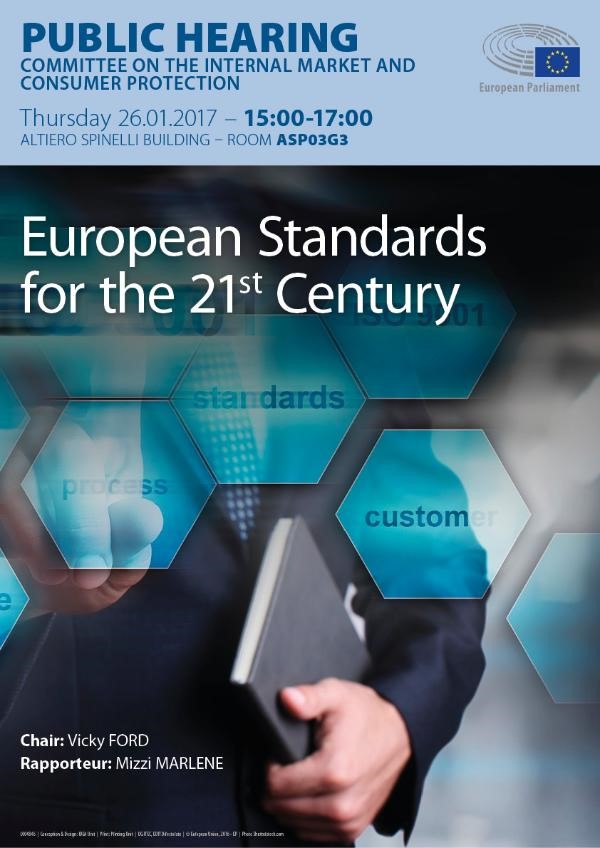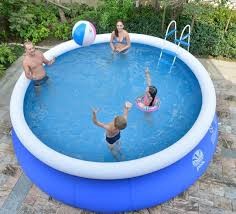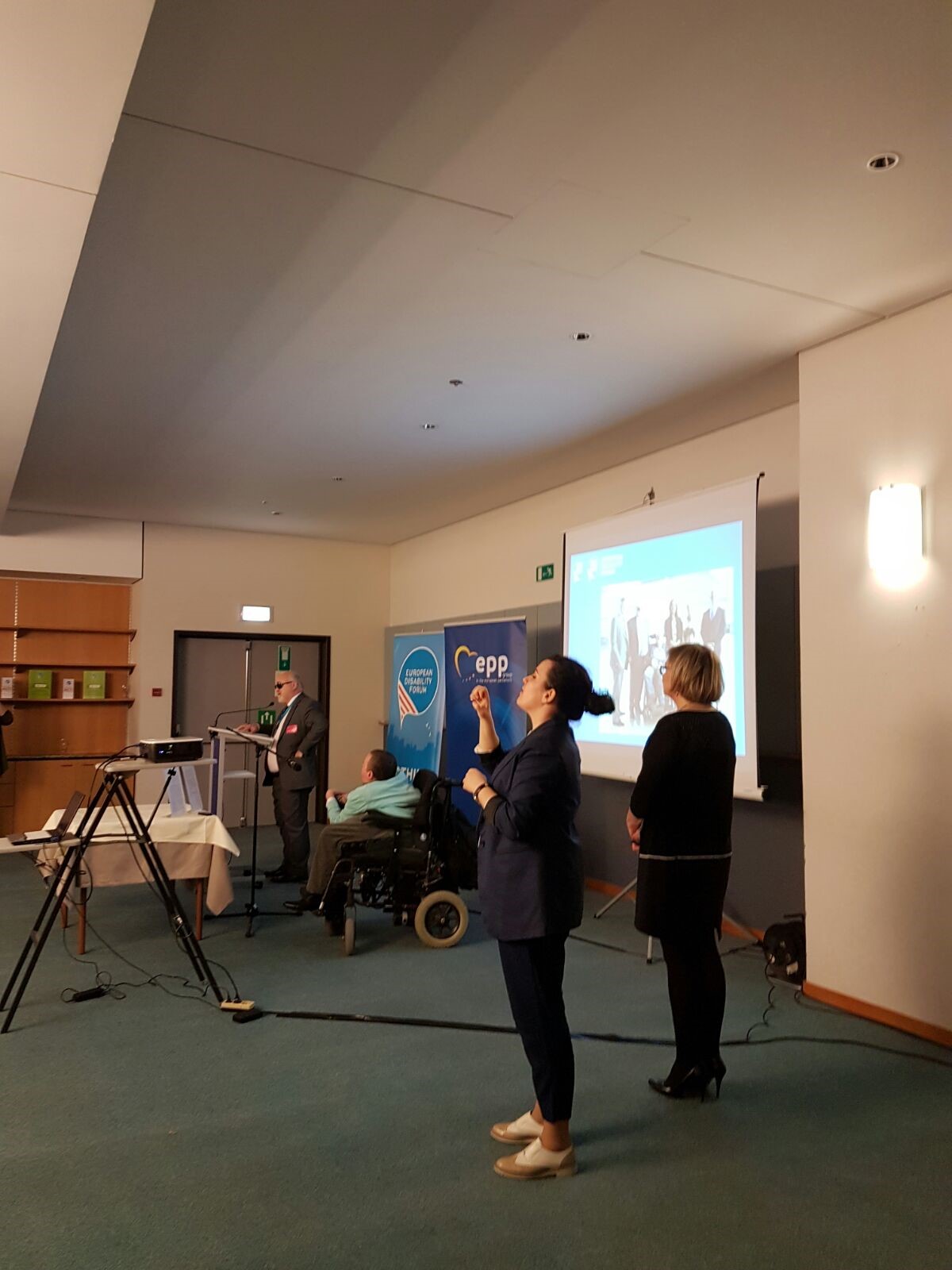An Opinion on draft standards
In November 2016, CEN and CENELEC decided to grant ANEC, ECOS and ETUC - the three Societal Stakeholder Organisations (SSOs) recognised under Annex III of Regulation (EU) 1025/2012 - the right to submit an Opinion on draft standards submitted to Enquiry or Formal Vote. The right was implemented on 1 January 2017.
The Opinion does not affect the decision on the adoption of a European Standard (EN), which remains with the members of CEN-CENELEC through the national delegation principle. However, the Opinion allows each SSO to express whether it supports the adoption of the standard through a “Favourable” or “Not Favourable” statement, accompanied by comments as needed. The parent Technical Committee must consider the Opinion and report to the relevant Technical Board.
The right to submit an Opinion is an additional right that does not affect the usual submission of comments, either during the development of a standard or during the voting stage.
In welcoming the CEN-CENELEC decision, ANEC Secretary-General, Stephen Russell, commented, “For many years, ANEC has asked for its voice to be strengthened in the adoption of standards. It has been a source of frustration for us and our experts that we have not been able to show our support for the adoption of a standard, even when we have committed many hours to its drafting, or have been able to voice our concern if we believe the committee has overlooked fundamental issues of concern. Although the Opinion is still not a vote, we appreciate that CEN-CENELEC have taken this step to offer greater inclusiveness toward societal stakeholders”.
We have prepared a leaflet with further information on the Opinion.
Open letter to MEPs on European Accessibility Act
In January 2017, a draft EP report on the proposal for a European Accessibility Act was published. It was prepared by the IMCO Committee (Rapporteur, Morten Løkkegaard MEP).
Unfortunately, the draft report does not support the mainstreaming of accessibility and dilutes the EC proposal. Hence, together with the European Disability Forum (EDF) and AGE Platform Europe, ANEC has sent an open letter to MEPs to express concern.
"European Standards for the 21st Century"
 On 26 January, the European Parliament's Committee on Internal Market & Consumer Protection (IMCO) held the public hearing, “European Standards for the 21st Century”. The hearing was divided into two panels: the first focused on innovative, interconnected and interoperable standards for the future, while the second discussed how to make standards serve a modern inclusive society.
On 26 January, the European Parliament's Committee on Internal Market & Consumer Protection (IMCO) held the public hearing, “European Standards for the 21st Century”. The hearing was divided into two panels: the first focused on innovative, interconnected and interoperable standards for the future, while the second discussed how to make standards serve a modern inclusive society.
ANEC’s Chiara Giovannini presented the views of the three Societal Stakeholder Organisations - ANEC, ECOS & ETUC - on the European Standardisation System and political approach to standards in the EU.
The presentations are available at this link.
Image: EP
Sunbeds - the time for action
Following a request from the European Commission (EC), the Scientific Committee on Health, Environmental & Emerging Risks (SCENIHR) has updated an Opinion from 2006, of the Scientific Committee on Consumer Products, on biological effects of ultraviolet (UV) radiation relevant to health, with particular reference to sunbeds for cosmetic purposes.
In April 2016, ANEC supported an SCENIHR Preliminary Opinion and believes attention needs to be drawn to the key findings on carcinogen effects of UV radiation and the effects on younger users, as well as the potential for harm to outweigh any benefits.
The SCHEER Opinion, of November 2016, finds UV radiation – including that emitted by sunbeds - to be a “complete carcinogen”, as it acts both as an initiator and promoter of cancer. It goes on to state that UV radiation, “causes cutaneous melanoma and squamous cell carcinoma at all ages and that the risk for cancer is higher when the first exposure takes place in younger ages”. The Opinion finds “moderate evidence” that exposure to UV radiation, including that emitted by sunbeds, also increases the risk of basal cell carcinoma and ocular melanoma. The Opinion concludes that there is “no safe limit” for exposure to UV radiation from sunbeds, and the use of sunbeds to encourage production of Vitamin D is redundant as there are alternative sources of Vitamin D.
Given these findings, which confirm earlier concerns, ANEC urges the EC, the Member States and the standardisation bodies not to delay action in order to protect the health of consumers.
Ruling of the ECJ on Harmonised Standards
In 2014, the European Court of Justice (ECJ) was asked whether it has competence to examine a Harmonised Standard (James Elliott Construction, case C-613/14). In January 2016, the Advocate General gave a positive opinion as Harmonised Standards are implicitly connected to a Directive or Regulation. A more recent ruling of the Court of Justice has confirmed the opinion of the Advocate General, at least partly, although it is specific to construction standards and the related legislation (itself a special example of New Approach/New Legislative Framework legislation).
The ECJ confirms it has jurisdiction over (construction) standards as,
“a harmonised standard,…, adopted on the basis of Directive 89/106/EEC and the references to which have been published in the Official Journal of the European Union, forms part of EU law, since it is by reference to the provisions of such a standard that it is established whether or not the presumption laid down in Article 4(2) of Directive 89/106/EEC applies to a given product”.
Nevertheless, the ECJ adds that (construction) standards are not binding in the case examined.
A legal analysis of the ruling and its possible implications is expected.
New European standard for domestic mini pools
 ANEC welcomes the adoption by CEN of EN 16927 “Mini pools - Specific requirements including safety & test methods for mini pools”, prepared by CEN/TC 402 “Domestic pools and spas”. ANEC participated in the drafting of the standard and supported its adoption.
ANEC welcomes the adoption by CEN of EN 16927 “Mini pools - Specific requirements including safety & test methods for mini pools”, prepared by CEN/TC 402 “Domestic pools and spas”. ANEC participated in the drafting of the standard and supported its adoption.
A mini pool is a non-permanently installed artificial pool, whose characteristics include a maximum effective water volume of less than 6m3, and where filtration and water treatment are not required.
The publication of EN 16927 is the latest in a series of European Standards for swimming pools, addressing requirements for in-ground pools and above-ground pools, and requirements and test methods for filtration systems; circulation systems and the treatment of water systems.
ANEC participates in continuing work in TC 402 on the drafting of a standard for hot tubs & spas.
ANEC and ECOS join forces in Ecodesign standardisation
Under a one-year action, ANEC and ECOS are to collaborate to ensure the effective participation of stakeholders, representing environmental and consumer interests, in standardisation work arising from the Ecodesign and Energy Labelling Directives.
This project is funded by the European Commission under a specific grant addressing action 36 of Horizon 2020 Work Programme 2016-2017, “Technical support to stakeholders on standardisation work for energy related products”.
ANEC will focus on items of high consumer relevance, including work in CEN-CENELEC JWG 10 on material efficiency aspects for Ecodesign, and Ecodesign aspects of product groups, such as white goods & smart appliances in CENELEC/TC 59X.
Report on implementation of the Circular Economy Action Plan
The European Commission has issued a report on implementation of the 2015 Circular Economy Action Plan. Of particular relevance to ANEC’s work on sustainability is the progress of legislative proposals on waste; the Ecodesign Working Plan 2016-2019; European standardisation of material efficiency, and circular economy principles in new initiatives in the construction sector.
ANEC awaits two initiatives the EC has committed to deliver in the coming year: a strategy on plastics and an analysis of the interface between chemicals, products and waste legislation and identification of policy options. The latter is key in the development of the non-toxic environment strategy announced in the 7th Environment Action Programme and sought by ANEC.
New ANEC study on use of service standards by supervising authorities
Services are one of the main drivers of the European economy and account for around 70 percent of GDP. Standards can ensure the quality of services, but only if they exist and are used. ANEC has published a report on the use of service standards by authorities in market surveillance.
Commissioned by ANEC, the Swedish Service Research Centre, Karlstad University, looked at both how the development of service standards could be encouraged and how authorities approach the surveillance of services through standards.
EP Disability Intergroup Reception
 The Disability Intergroup of the EP hosted a New Year’s Reception on 23 January in Brussels. The theme was 'A Europe that leaves no one behind'. A welcome from Marek Plura MEP was followed by speeches by Yannis Vardakastanis, the President of EDF, and Jana Hainsworth, the President of Social Platform, both of whom reflected on their priorities and expectations for 2017.
The Disability Intergroup of the EP hosted a New Year’s Reception on 23 January in Brussels. The theme was 'A Europe that leaves no one behind'. A welcome from Marek Plura MEP was followed by speeches by Yannis Vardakastanis, the President of EDF, and Jana Hainsworth, the President of Social Platform, both of whom reflected on their priorities and expectations for 2017.
CEN-CENELEC 10-10 webinars
The CEN-CENELEC Management Centre is continuing its series of “10-10 webinars”. The webinars offer an opportunity to learn about developments in standardisation, as well as specific topics that could have a direct impact on technical work. They are aimed at CEN and CENELEC technical body officers, but all are welcome to participate.
The calendar and more information is available on the CEN-CENELEC website.
ANEC is also planning to continue its webinars for its experts. We invite members to participate in the consultation on proposed topics recently launched by the ANEC Secretariat.
ANEC Work Programme 2017
The ANEC Work Programme 2017 sets out the activities ANEC plans to undertake this year. It lists more detailed areas of activity under seven sectoral priority areas – Accessibility, Child Safety, Digital Society, Domestic Appliances, Services, Sustainability, and Traffic & Mobility – as well as the horizontal area of Policy.
These priorities take note of the EC Annual Union Work Programme 2017, published in June 2016.
These may also be of interest:
• CEN-CENELEC Work Programme 2017
• ETSI Work Programme 2016-2017
• ISO/COPOLCO 2017 Work Programme
Goodbye Philippe!
On his retirement from ANEC, we must thank Philippe Capitaine, a member of the Digital Society WG and Representative in CENELEC TC 106X 'Electro Magnetic Fields in the Human Environment', for his commitment and enthusiasm in defending the consumer interest in standardisation.
All wish him a long, healthy and happy retirement.
News from ANEC Members
Czechia
Survey on senior consumers’ experiences with packaged products
The Czech Consumer Association (SČS) pays special attention to the most vulnerable groups in society, including children, older persons and persons with disabilities.
In 2016, SČS, with the Czech Cabinet for Standardization, launched a survey to assess the extent of difficulties that senior citizens face when opening packaged products. The survey focused on the experiences of these consumers when opening food or non-food mainstream consumer products. The results confirmed that they indeed encounter problems. Tin cans (61%) were found to pose the most difficulties (61%), then products sealed in plastic containers (53%) and beverage bottles (38%).
The results show that the recommendations of CEN/TS 15945 : 2011 ‘Packaging - Ease of opening - Criteria and methods - Criteria and test methods for evaluating consumer packaging’ are not put into practice. In 2017, SČS aims to build on the survey findings and cooperate with partners from industry to establish tools to promote and strengthen the implementation of standards. SČS also intends to learn from consumer experiences in other countries.
For more information, please contact Libor Dupal (This email address is being protected from spambots. You need JavaScript enabled to view it.).
Spain
True or False (“Verdadero o Falso”)
Last year, CECU, the Spanish Confederation of Consumers & Users, launched the campaign, “Verdadero o Falso”, to advise consumers about the consequences of buying counterfeit products and to promote responsible consumption. CECU has now prepared some materials aimed at raising consumer awareness about counterfeit products and the consequences these products have on the economy, environment, health & labour. These include a video, revealing the reality of counterfeit products, and a digital bulletin of articles from those concerned with consumer protection. ANEC Secretary-General, Stephen Russell, was pleased to contribute to the digital bulletin.
For comments or if you wish to write an article for the ANEC Newsletter, please contact: Kristina Aleksandrova (This email address is being protected from spambots. You need JavaScript enabled to view it.).
ANEC is supported by the European Commission and EFTA.


